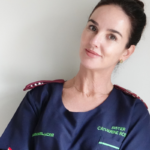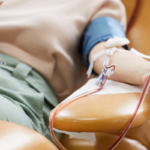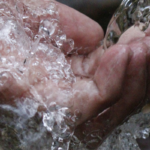World Breastfeeding Week: Celebrating the Benefits for South African Families
As we embrace the month of August, we joyfully celebrate the significance of family and the well-being of our precious little ones. In this blog post, we highlight the importance of World Breastfeeding Week, a cherished event that takes place from the 1st to the 7th of August. Let us delve into the three key health benefits that breastfeeding offers to your baby.
Celebrate World Breastfeeding Week!
Join us in celebrating World Breastfeeding Week, a time to raise awareness about the immense benefits of breastfeeding, provide unwavering support to breastfeeding parents, and cultivate a compassionate society that cherishes the well-being of South African families. Whether you are a devoted breastfeeding mother, a supportive family member, an understanding employer, or a compassionate community member, your involvement makes a profound difference.
Remember, breastfeeding is a sacred bond between a mother and her child. It is a moment of love, connection, and nourishment that nurtures both body and soul.
Let us unite during World Breastfeeding Week to celebrate, educate, and empower. Together, we can create a society that treasures and upholds the well-being of our little ones.
Wishing you a joyous and fulfilling World Breastfeeding Week!
Long-term Benefits for Your Baby
Breastfeeding is a remarkable journey that goes beyond simply providing immediate nourishment. It bestows long-term advantages that profoundly shape your child’s health, even into adulthood. Research has shown that breastfed babies have a reduced risk of developing chronic conditions such as obesity, diabetes, asthma, and certain allergies. The unique composition of breast milk provides essential nutrients and precious antibodies, fortifying your baby’s immune system and fostering optimal growth and development.
Recommended for the First Two Years
Exclusive breastfeeding for the initial six months of your baby’s life is highly encouraged. During this precious period, nothing compares to the nourishing power of breast milk. After six months, continuing to breastfeed alongside introducing appropriate family foods for up to two years or more ensures ongoing benefits. Breast milk seamlessly complements a varied diet and provides your baby with the vital nutrients necessary for healthy growth. Remember, the longer you breastfeed, the longer the protection endures, and the greater the benefits bestowed upon your little one.
Supporting Breastfeeding Parents in the Workplace
This year’s theme for World Breastfeeding Week is “Enabling breastfeeding: making a difference for working parents.” We acknowledge the unique challenges faced by breastfeeding parents who work outside the home and strive to offer our unwavering support. Employers, families, and communities all play a crucial role in enabling breastfeeding mothers to continue their journey. Establishing lactation rooms, providing breastfeeding breaks, and facilitating access to nearby childcare centers can make a significant difference. Expressing milk using a breast pump or by hand allows mothers to leave their precious milk with a trusted caregiver for their baby’s nourishment. Additionally, freezing breast milk enables future use and ensures that your baby continues to receive the precious benefits of your milk even when you’re apart.

The Importance of Learning CPR and First Aid for Teenagers
As parents, learning CPR and first aid is not just about personal readiness; it’s a powerful tool in ensuring the safety and well-being of our adolescent children. Here’s why it’s crucial for parents to acquire these life-saving skills for their teenage children. Sister Catherine writes about the importance of learning

From witnessing a lot of trauma in my work to empowering parents
I want to take you on a journey that led me to become a full-time CPR and first aid instructor and proud business owner of Survival CPR. This story is about passion, empowerment, and making a real difference in the lives of people like you. A Trauma-Fueled Calling: Having spent

The Role of the Microbiome in Children
As we bask in the warmth of spring and witness the beauty of nature’s renewal, let’s delve into a topic just as fascinating and vital for our little ones’ well-being – the microbiome. This month, we explore the incredible world of microorganisms that inhabit our children’s bodies and the profound

World Breastfeeding Week
World Breastfeeding Week: Celebrating the Benefits for South African Families As we embrace the month of August, we joyfully celebrate the significance of family and the well-being of our precious little ones. In this blog post, we highlight the importance of World Breastfeeding Week, a cherished event that takes place

Winter Safety Guide
Winter’s arrival brings with it a desire to snuggle up and stay warm in the comfort of our homes. Fireplaces, gas and electrical blankets, heaters, and hot water bottles become our trusted companions during these chilly months. However, it’s crucial to prioritize safety to prevent potential accidents or hazards. In

Sudden Infant Death Syndrome (SIDS)
Sudden Infant Death Syndrome, or SIDS, is a heartbreaking tragedy that affects thousands of families each year. As a parent, the thought of losing your child to SIDS can be overwhelming and scary. But there are steps you can take to reduce the risk of SIDS and be prepared for

World Blood Donor Day 2023: “Give blood and keep the World beating”
Did you know that blood donation is one of the most selfless and impactful things you can do for your community? It’s true! And in South Africa, the need for blood donors is always high. That’s why today, I want to share with you some of the many reasons why

First Aid for Burns – a must read for every parent
Sister Catherine Rodwell sheds light on the right way to handle burns, be it in children or adults. It’s crucial to be aware of the proper procedure to not worsen the burn’s impact. From 6-12 May, National Burns Awareness Week is being observed. In continuation of our conversation with “Mommy

A mother recounts her traumatic experience
We are very grateful for this mommy who wanted to share her traumatic story with us, so that other parents can learn how quickly accidents can happen. Please note that photo’s can be triggering. We are very grateful for this mommy who wanted to share her traumatic story with us,


